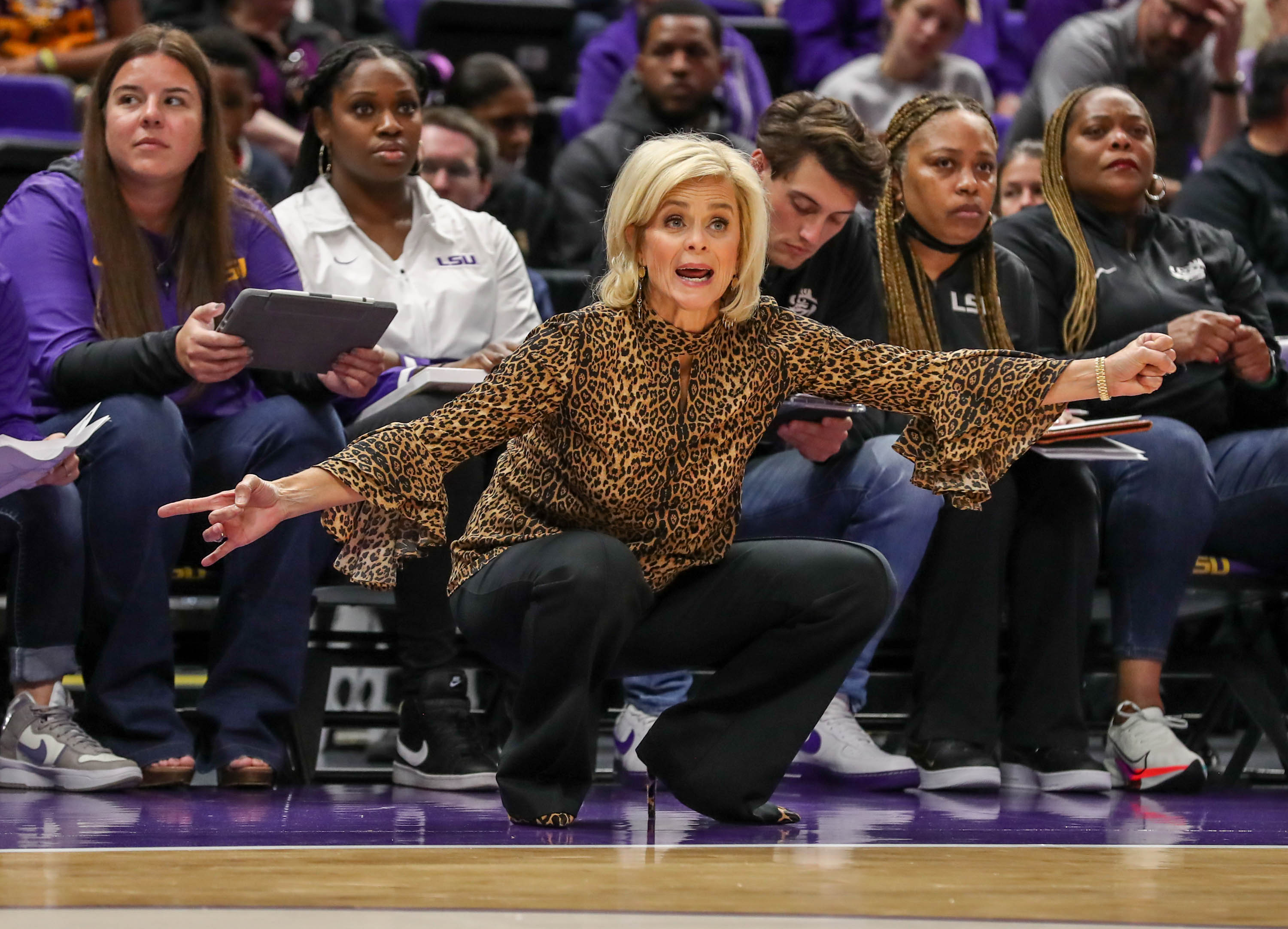The Evolution of the US Women’s Basketball Coaching Landscape

The landscape of US women’s basketball coaching has undergone a significant transformation since its inception, reflecting societal shifts, technological advancements, and the growing popularity of the sport. From the pioneering figures who laid the groundwork to the modern-day coaches who embrace data-driven strategies, the evolution of coaching roles and approaches has been instrumental in shaping the game’s trajectory.
Key Figures and Their Impact
The early days of women’s basketball were marked by a limited number of coaches, often volunteers with a passion for the sport. However, these pioneers played a pivotal role in establishing the foundations for future success. Among them, Margaret “Maggie” Dixon, who led the University of Connecticut women’s basketball team to the 2003 NCAA Championship, and Kay Yow, who coached the NC State Wolfpack to the 1983 NCAA title and is recognized for her contributions to women’s sports, stand out as early examples of visionary coaches who helped elevate the sport’s profile.
The Influence of Technology and Data Analysis
The advent of technology has revolutionized coaching strategies in women’s basketball, offering coaches access to an unprecedented amount of data and analytical tools. Modern coaches employ sophisticated video analysis software, performance tracking systems, and statistical databases to gain insights into player performance, opponent tendencies, and game-flow patterns. This data-driven approach allows coaches to tailor their strategies, make informed decisions during games, and optimize player development.
Coaching Approaches: Pat Summitt and Geno Auriemma
The coaching approaches of legendary figures like Pat Summitt and Geno Auriemma have shaped the modern game and inspired generations of coaches. Pat Summitt, known for her intense work ethic, disciplined approach, and emphasis on fundamentals, built a dynasty at the University of Tennessee, winning eight national championships. Geno Auriemma, on the other hand, emphasized a fast-paced, up-tempo style of play, incorporating elements of offense and defense that challenged traditional basketball concepts. Both coaches instilled a winning culture, developed exceptional players, and contributed significantly to the growth of women’s basketball.
Key Coaching Roles and Responsibilities

The US women’s basketball coaching landscape is a dynamic and demanding field, requiring individuals with a deep understanding of the game, strong leadership qualities, and a passion for player development. Coaches at all levels, from high school to professional leagues, play a pivotal role in shaping the lives and careers of their athletes.
Player Development
Player development is the cornerstone of effective coaching. It involves identifying individual strengths and weaknesses, tailoring training programs to address specific needs, and fostering a supportive environment that encourages growth and improvement.
- Skill Development: Coaches work closely with players to refine fundamental skills such as shooting, dribbling, passing, and defense. This may involve individualized drills, group sessions, and video analysis to identify areas for improvement.
- Physical Conditioning: Coaches are responsible for designing and implementing training programs that enhance players’ physical fitness, agility, and strength. This may include weight training, plyometrics, and cardiovascular exercises.
- Mental Toughness: Coaches play a crucial role in developing players’ mental resilience, helping them to overcome challenges, maintain focus, and perform under pressure. This may involve techniques such as visualization, positive self-talk, and stress management.
- Game Intelligence: Coaches emphasize understanding the game’s intricacies, including strategy, tactics, and decision-making. This involves teaching players to read the game, anticipate opponents’ moves, and make informed choices on the court.
Game Strategy
Effective game strategy is essential for success in women’s basketball. Coaches are responsible for developing game plans, making adjustments during games, and maximizing their team’s strengths while minimizing their weaknesses.
- Offensive Systems: Coaches design and implement offensive systems that leverage players’ strengths and create scoring opportunities. This may involve utilizing different sets, plays, and offensive schemes depending on the opponent and game situation.
- Defensive Schemes: Coaches develop defensive strategies to limit opponents’ scoring opportunities and create turnovers. This may involve employing man-to-man or zone defenses, adapting to different offensive styles, and emphasizing communication and rotations.
- In-Game Adjustments: Coaches are adept at making adjustments during games based on opponent’s strategies, player performance, and the flow of the game. This may involve changing offensive or defensive schemes, substituting players, and adjusting game plans.
Team Management
Effective team management is crucial for fostering a positive and productive team environment. Coaches are responsible for building team cohesion, promoting communication, and resolving conflicts.
- Team Culture: Coaches establish a team culture that emphasizes respect, accountability, hard work, and sportsmanship. They create a positive and supportive environment that encourages players to perform at their best.
- Communication: Coaches communicate effectively with players, staff, and parents, providing clear expectations, feedback, and guidance. They foster open communication channels and encourage players to voice their concerns.
- Leadership: Coaches provide leadership by setting an example of professionalism, commitment, and integrity. They inspire and motivate players to achieve their full potential.
- Conflict Resolution: Coaches are adept at resolving conflicts among players and staff, fostering a harmonious team environment. They promote open dialogue and find solutions that benefit the entire team.
The Impact of Coaching on Player Development and Success: Us Women’s Basketball Coach

Coaches in women’s basketball play a pivotal role in shaping the players’ skills, confidence, and leadership qualities, ultimately influencing the overall success of teams. This impact is not just about winning games; it’s about fostering a holistic development of athletes both on and off the court.
The Role of Coaches in Shaping Player Skills, Us women’s basketball coach
Coaches are responsible for designing and implementing training programs that cater to the individual needs of each player. This includes developing fundamental skills like dribbling, shooting, passing, and defense, as well as honing more advanced techniques like strategic play and game management. Coaches utilize various methods like drills, simulations, and game-like situations to ensure players master these skills and improve their overall performance.
The Impact of Coaches on Player Confidence
Coaches play a vital role in building players’ confidence by providing positive reinforcement, constructive feedback, and encouragement. They create a supportive and empowering environment where players feel comfortable taking risks, learning from mistakes, and believing in their abilities. Coaches also emphasize the importance of mental toughness, resilience, and perseverance, helping players develop the mental fortitude to overcome challenges and perform at their best.
Examples of Coaches Inspiring Players to Achieve Their Full Potential
Many coaches have left an indelible mark on the careers of countless players. For instance, Geno Auriemma, the head coach of the University of Connecticut women’s basketball team, has mentored numerous players who have gone on to become successful professionals and Olympians. His coaching style, known for its demanding yet supportive nature, has helped players like Diana Taurasi and Sue Bird achieve their full potential, leading them to numerous championships and individual accolades.
The Impact of Coaching on Team Success
Coaches are instrumental in shaping the overall success of US women’s basketball teams at both the national and international levels. Their strategic game plans, player rotations, and in-game adjustments significantly influence the outcome of games. Coaches also instill a strong team culture, emphasizing teamwork, communication, and accountability, fostering a cohesive unit that works together towards a common goal.
Examples of Coaches Contributing to Team Success
The success of the US women’s national basketball team, known for its dominance in international competitions, can be attributed to the leadership and coaching expertise of figures like Dawn Staley and Cheryl Reeve. Their ability to bring together a diverse group of talented players, create a winning culture, and implement effective game plans has resulted in numerous Olympic gold medals and world championships.
The US Women’s Basketball Coach has been a vocal advocate for social justice, often using her platform to speak out on issues that matter to her. This dedication to activism is something she shares with many others who have participated in the Trump conferences , events known for their diverse range of speakers and viewpoints.
While the coach’s approach might differ, the core principle of using a public platform to drive change remains the same.
The US Women’s Basketball coach, a master strategist on the court, often finds herself navigating the complex world of media and public opinion. While she focuses on the game, she can’t help but be aware of the national conversation, especially when it comes to figures like Donald Trump, whose press conferences often become media events in their own right.
She recognizes the impact of these events on the broader public discourse, and how it can influence the way people perceive athletes and their roles in society.
